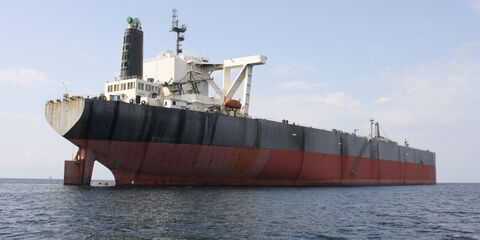Recent debate at the International Maritime Organization saw a plurality of member nations focus on moving towards zero carbon, rather than the term net zero that would allow offsets.
But that left many questions still to be answered over what zero-carbon means.
Definitions range from absolute zero carbon — zip, zero, nada — to well-to-wake life-cycle emissions calculations that allow some fuels with carbon in them but ban the use of offsetting by, for example, planting trees to make up for greenhouse gas output.
Supporters of holding shipping to a net-zero standard point to language at the United Nations, where sources of greenhouse gas emissions can be compensated for by so-called carbon sinks, such as forests that inhale CO2.
But detractors say this is a reference to entire countries, and shipping has no carbon sinks.
John Maggs, senior policy advisor at environmental group Seas at Risk, said: "Within the shipping industry, we only have sources. We don't have any sinks."
For Maggs, who was among voices against net zero at the IMO's recent Marine Environment Protection Committee meeting, the answer is absolute zero that — for fuels — is determined on a well-to-wake basis. That means zero-emissions fuels such as hydrogen do not count if they are made from natural gas.
"Nothing else makes any sense really," he told TradeWinds.
But the International Chamber of Shipping — the global shipowners' organisation — has said in submissions to the IMO that only net-zero carbon is plausible as a revised target for 2050, as it would allow a wider range of alternative fuels and open the door for carbon capture and storage.

Tristan Smith, a reader in shipping and energy at University College London's UCL Energy Institute, said he does not favour an "absolute-zero" measure but rather "zero on a life-cycle emissions basis".
That could still legitimise biofuels and carbon capture, under the right circumstances. It could also include extracting carbon out of the atmosphere using direct air-capture technology and using it to make e-methanol, even though that would produce CO2 when burned at sea.(Copyright)




